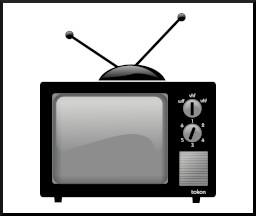Darryl F. Zanuck? Anonymous Movie Mogul? Gabe Essoe? San Franciscan? Apocryphal?

Question for Quote Investigator: Movie industry people felt threatened by the advent of televised entertainment. Yet, early television consoles were expensive devices housed in bulky wooden cabinets with small screens that displayed only flickering black and white images. Apparently, a skeptical movie tycoon said:
People will soon get tired of staring at a plywood box.
I’ve seen this statement in compilations of bad predictions. Would you please explore the provenance of this expression?
Reply from Quote Investigator: The earliest match located by QI appeared in “The Wall Street Journal” in 1951. Boldface added to excerpts by QI:1
What’s giving the movie men the most cause for joy is this: They think they are beginning to make a little headway in their battle with arch-rival TV.
“Video isn’t able to hold on to the market it captures after the first six months,” declares a New York movie mogul. “People soon get tired of staring at a plywood box every night,” claims a San Franciscan.
The passage above contains quotations from two different people. Oddly, later citations implausibly ascribed both statements to Darryl F. Zanuck, a powerful movie producer based in Hollywood, not New York.
Below are additional selected citations in chronological order.
In 1951 the article in “The Wall Street Journal” was reprinted in other newspaper such as the “Des Moines Tribune” of Iowa.2 Thus, the quotations were further disseminated.
In 1964 a trade journal for the company RCA called “Electronic Age” printed the two quotations in a way that would lead most readers to conclude both were spoken by the same person:3
In the late 1940s, Hollywood opinion was split into two camps. There were those who felt that the moviemakers ought to “fight” television; a similar group was convinced that, left alone, television would just go away. “Video isn’t able to hold on to the market it captures after the first six months,” said one movie executive. “People soon get tired of staring at a plywood box every night.” This somewhat optimistic conclusion proved false.
In 1981 “The Book of Movie Lists” by Gabe Essoe attributed the combined quotations to Zanuck. The author provided no supporting evidence for the ascription, and no date was specified:4
DARRYL F. ZANUCK, 20th Century-Fox studio chief
“Video won’t be able to hold onto any market it captures after the first six months. People will soon get tired of staring at a plywood box every night.”
In 1984 “The Experts Speak: The Definitive Compendium of Authoritative Misinformation” by Christopher Cerf and Victor Navasky attributed the same combined quotations to Zanuck. The footnote accompanying the statement pointed to the 1981 book by Gabe Essoe for support. Thus, the reference work relied on weak evidence.5
In 1992 “The New York Public Library Book of Twentieth-Century American Quotations” included the quotation; however, the editors relied on Essoe:6
[Television] won’t be able to hold onto any market it captures after the first six months. People will soon get tired of staring at a plywood box every night.
DARRYL F. ZANUCK, in Gabe Essoe, The Book of Movie Lists, 1981.
In 1997 “Predicting the Future: From Jules Verne to Bill Gates” by John Malone credited Zanuck and specified the year 1946, but the supporting evidence was unspecified:7
In 1946, Darryl F. Zanuck, head of 20th Century Fox, pooh-poohed the new competitor, saying television wouldn’t “be able to hold on to any market it captures after the first six months.” Whether Zanuck actually believed this bit of wishful thinking is open to question. He also said, “People will soon get tired of staring at a plywood box,” with a derisory tone, suggesting that he was simply trying to slow down sales of television sets. Whatever the motive, it was a spectacular miscall.
In conclusion, “The Wall Street Journal” in 1951 published one quotation from a New York movie mogul and another quotation from a San Franciscan. By 1981 the two statements had been combined and ascribed to Darryl F. Zanuck. Yet, Zanuck was neither a New York movie mogul nor a San Franciscan. Thus, the two sources of the remarks remain anonymous.
Image Notes: Illustration of a television from Clker-Free-Vector-Images at Pixabay. Image has been retouched, resized, and cropped.
Update History: On March 31, 2025 the format of the bibliographical notes was updated.
- 1951 February 14, The Wall Street Journal, Movie Upturn: Attendance Is Gaining After Four-Year Drop, Theater Men Think, Quote Page 1, Column 6, New York. (ProQuest) ↩︎
- 1951 February 20, Des Moines Tribune, Movie Attendance Starting to Climb–Industry Says Public ‘Tires of TV’ (Reprinted from Wall Street Journal), Quote Page 13, Column 4,Des Moines, Iowa. (Newspapers_com) ↩︎
- 1964 Winter, Electronic Age, Volume 24, Number 1, The Economic Impact of Television by Desmond Smith, Start Page 20, Quote Page 22, Column 1 and 2, Published by Radio Corporation of America, New York. (Internet Archive at archive.org) ↩︎
- 1981, The Book of Movie Lists by Gabe Essoe, Chapter 15: The Groove Tube, List: 10 Revealing Hollywood Quotes About the Advent of Television, Quote Page 222, Arlington House, Westport, Connecticut. (Verified with scans) ↩︎
- 1984, The Experts Speak: The Definitive Compendium of Authoritative Misinformation by Christopher Cerf and Victor Navasky, Part 5: Homo faber: Man the Toolmaker, Chapter: Inventions: The Triumph of Technology, Topic: Radio and Television, Quote Page 208, Pantheon Books, New York. (Verified on paper) ↩︎
- 1992, The New York Public Library Book of Twentieth-Century American Quotations, Edited by Stephen Donadio, Joan Smith, Susan Mesner and Rebecca Davison, Topic: Television, Quote Page 336, Warner Books Inc., New York. (Verified on paper) ↩︎
- 1997, Predicting the Future: From Jules Verne to Bill Gates by John Malone (John Williams Malone), 1946: Commercial failure of television: Darryl F. Zanuck, Quote Page 114, M. Evans and Company, New York. (Verified on paper) ↩︎